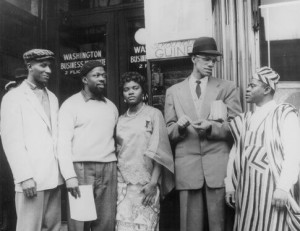
Garveyism was the Pan-African philosophy of the Jamaican political leader, Marcus Garvey, in the early 20th Century, aimed at precipitating a global movement of economic empowerment. Garvey preached the unity of all blacks, claiming that liberty would come about only through the return of all Afro-Americans to their ancestral home. Although the Universal Negro Improvement Association (UNIA) movement which Garvey formed has been ridiculed as fleeting, its legacy as the most global, and most influential antiracist movements in history stands it out as a classic model of transnationalism.
In Nigeria, Marcus Garvey’s message of emancipation and empowerment resonated in the local anticolonial discourses. In response to Garvey’s letter of 1919 to all “Fellowmen of the Negro Race,” Herbert Macaulay threw his intellectual weight behind the shipping line idea conceived by Garvey to ferry black peoples of the New World to Africa. Macaulay outlined the importance of the transnationalism brought to fore with the Garvey movement, calling for what he called, as found in the University of Ibadan Macaulay papers, the “unity of sentiments.” Garveyism was particularly popular with the Lagos intelligentsia, and there was an active branch of the movement in the 1920s and 1930s. In the fall of 1920, a Lagos branch of the UNIA was organized, and this Graveyite movement enjoyed coverage of the Lagos Weekly Record. Although the organization made little headway, the ideas propagated by Garvey had made deep impression on some Nigerians. There were a few dissidents however. Samuel Herbert Pearse, recognized in a letter of invitation to UNIA conference by Marcus Garvey as a Pan-Africanist did not respond apparently for his displeasure with the local chapter of the organization.
The back to Africa idea, though reaching an unprecedenented height under Garvey’s leadership, was hardly original to him. In 1859-60, many West Indians and African-Americans dreamt of such. Historian, Fred I.A. Omu described in his Press & Politics (1880-1937) book how Robert Campbell, pioneer Nigerian newspaper publisher joined Dr. Martin R. Delany on a tour of Yorubaland with the aim of establishing a negro colony. Campbell obtained the Alake‘s commitment which was later withdrawn. Disappointed but not losing energy, Campbell settled in Lagos where he established his career.
Two African-American movements which sprang up in 1930; the Nation of Islam and the Rastafari movement, credited Garvey as a principal influence. The man who became the force behind the Nation of Islam, Malcom X, visited Nigeria twice, giving a lecture at the University of Ibadan in 1964.





















